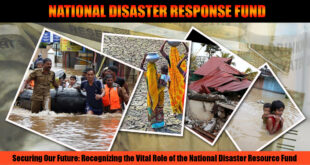Coral reefs are among the most diverse ecosystems on earth, and their role in maintaining marine biodiversity is of no small measure. However, it is well documented that coral systems around the world are bleaching and dying due to climate and chemical changes in the sea water. A team from National Centre for Coastal Research, Chennai, plans to work on coral monitoring and restoration in the Gulf of Mannar region. “We assess the location and coverage of corals through remote sensing, then study how the sediment affects the coral reef,” says T Shunmugaraj, who leads this project along with M V Ramanamurthy, Director, NCCR. The team will also set up an acquatech park which will help local persons rear marine ornamental fish towards a sustainable livelihood. The group has prior experience in studying corals across the country. They have successfully transplanted and nurtured corals in the Lakshadweep region. Now they are set to work in the Gulf of Mannar. Coral bleaching Corals have a symbiotic relationship with the unicellular algae dinoflagellates. An increase in sea surface temperatures leads to coral bleaching and the breaking of this relationship. Not all corals are equally sensitive. The most susceptible are the branching corals, for example, Acropora species, and the least susceptible are the massive ones, for example Favia species. Coral reefs in India are only seen in some localities around the Gulf of Mannar, Gulf of Kutch, Lakshadweep islands and Andaman and Nicobar islands. In many of these places, bleaching of corals and related cnideria species such as giant clam and tentacle sea anemone have been observed by the team. However, constructive interventions exist for this problem. The methods include reducing harvest of herbivorous fish and minimising anthropogenic causes of bleaching. The National Centre for Coastal Research, which comes under the Ministry of Earth Sciences, conducted a mapping of corals for Gulf of Kutch, Gulf of Mannar, Lakshadweep and Andaman and Nicobar islands over a period of five years, from 2000 to 2005. Their results were startling, as they found less than 40% of the coral reefs in India were still alive.
 Chinmaya IAS Academy – Current Affairs Chinmaya IAS Academy – Current Affairs
Chinmaya IAS Academy – Current Affairs Chinmaya IAS Academy – Current Affairs



